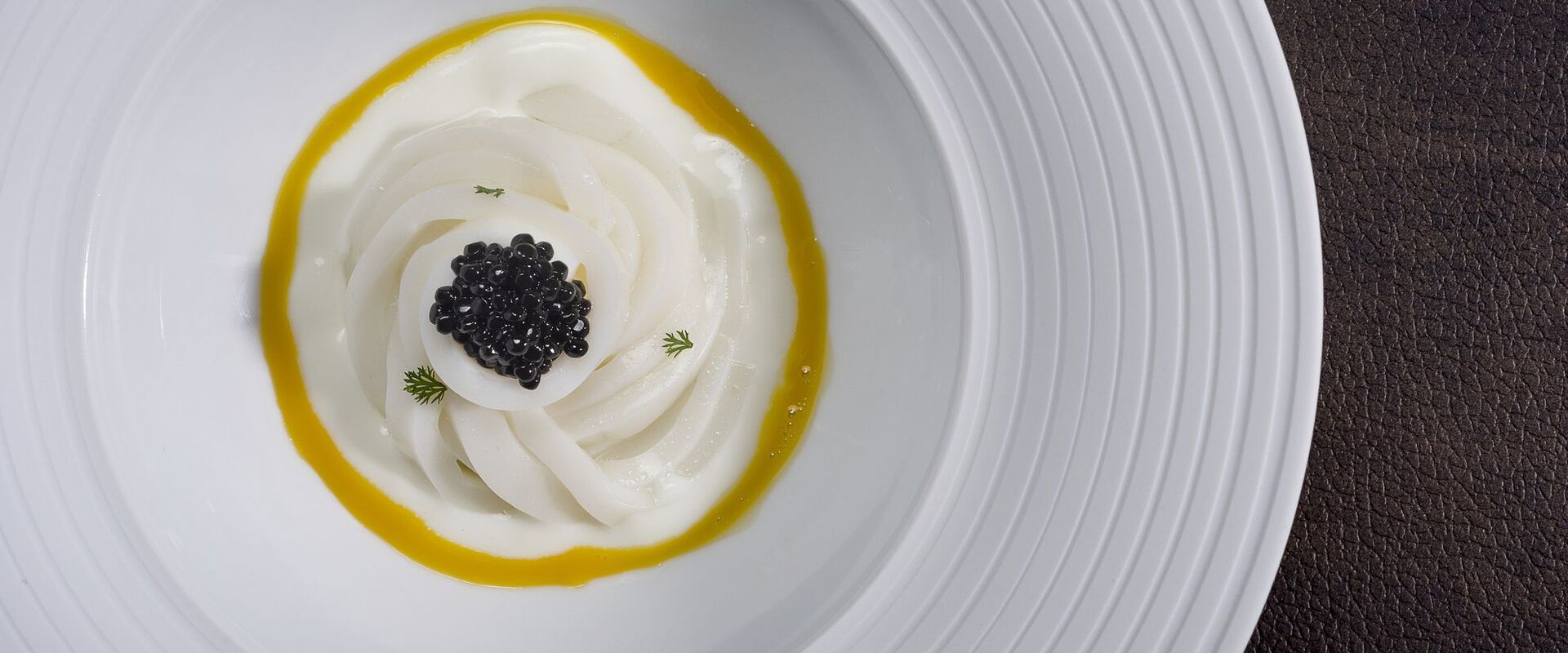Chef Terry Giacomello of “Inkiostro”: second that emotion (part II)
2017-05-17
We continue our entertaining chat with
Terry Giacomello, chef at Parma’s Michelin-starred
“Inkiostro” restaurant since 2015 (though he only has one star for now, we’re sure his firmament will soon be shining even brighter).
It’s not just the restaurant that’s stellar: just as impressive is Terry’s CV, which includes stints at the
temples of global gastronomy. From René Redzepi’s “Noma” to Ferran Adrià’s “El Bulli”, voted the world’s best restaurants for many years by the British monthly “Restaurant”.
Terry, who started out at his family’s restaurant near Pordenone, is passionate about his profession, which he pursues
with the modesty of the greats, the dedication of an aficionado and the courage of an innovator. He knows that nothing is off-limits in the kitchen, and that you don’t have to stick to tradition to appreciate local products. Take Parma Ham, for example. Terry wouldn’t dream of slicing or dicing it. He uses it to make stock or cooks with the bone marrow…
What’s your philosophy on cooking, Terry?
“
It’s the most difficult part of my job… It means never being predictable, using your creativity to inspire emotions and make customers smile because of your food. Cooking is a language, a means of expression. It’s about making customers happy for a while, ensuring they have fun and feel included.”
What does creativity mean to you?
“
Freedom! If I had to define it, I’d say it means seeing something no one else can. Creative cooking excites and inspires emotions, like a work of art.”
What’s the most satisfying part of your job?
“
Seeing happy customers and hearing them say: wow, that was a journey, an experience, like going to the museum, theatre or cinema….”
What’s the most difficult aspect?
“
Creating dishes which bring people joy. It might take twenty or thirty days, working three or four hours a day, between the idea for a dish and putting it on the menu. It involves a lot of trial and error. Especially if you’re combining ingredients from different culinary traditions or ones which have never been put together before.”
How important is experimentation to you?
“
It’s fundamental. Lately I’ve been working on molecular gastronomy with Davide Cassi, who lectures in Chemistry and Physics at the University of Parma, and studying herbs with Villiam Morelli, a botanist from Reggio Emilia.”
What would you have been if you hadn’t been a chef?
“
A chef! Even more so.”
What qualities do you have as a chef?
“
First and foremost, my team spirit. Even if you’re gifted creatively, you need to connect with the people around you, not work by yourself. Creativity is about brain storming and team work.”
Mariagrazia Villa
Photographs: Adriano Mauri
